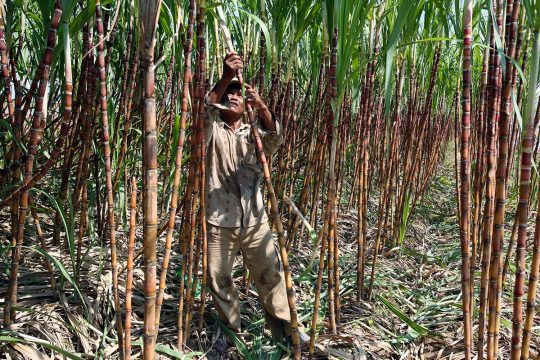Cambodia's government on Friday asked the country's top court to dissolve the main opposition party, which is hanging on by a thread after its leader was jailed on treason charges, sending scores of MPs into self-exile.
The Cambodia National Rescue Party (CNRP) has been battered by a government crackdown that is clearing out rivals of strongman premier Hun Sen ahead of a 2018 election that could have tested his 32-year grip on power.
The government has used a mix of court cases, legal maneouvres and threats to sideline the opposition's leadership and drive more than half of its MPs out of the country in fear.
The exodus, prompted by the surprise arrest of the party's president Kem Sokha last month, has raised serious doubts about the party's ability to contest next year's poll.
Its future was further imperiled Friday when lawyers from the Ministry of Interior lodged a complaint urging the Supreme Court to disband the CNRP for allegedly violating a controversial political parties law.
"There is strong and sufficient evidence for the Supreme Court to dissolve the CNRP," Ky Tech, one of the lawyers, told reporters outside the court house.
"If we keep (CNRP), it will lead to the destruction of the nation, so we must prevent it," he added.
His team accused the CNRP of breaching a law that gives judges power to disband parties who threaten national security, take orders from a foreign entity or conspire with individuals whose activities are "against the intest of Cambodia", among other offences.
When the legislation was passed earlier this year, rights groups warned it was a brazen attempt by Hun Sen to checkmate an opposition that had been making steady gains at the polls.
The wily premier has long history of wielding the kingdom's pliant justice system to undermine his rivals.
Lawyer Ky Tech said the evidence of the party's wrongdoing lay in the same 2013 speech the government has seized on to accuse CNRP leader Kem Sokha of treason.
The politician was detained in a surprise arrest on September 3 that sent fear rattling through the fragile democracy.
The main evidence cited for his charges is a public 2013 speech given in Australia in which he said he had received US help to build a pro-democracy movement inside Cambodia.
Hun Sen alleges this is evidence that Kem Sokha was conspiring in a "secret plan" with Washington to oust the government.
In a message sent through his lawyers on Monday, Kem Sokha denied the treason charge as "total slander", a view echoed by the US and other democratic countries which have called for his immediate release.
Supporters of Hun Sen say he has brought stability and growth to a nation once plagued by war.
Detractors say corruption and inequality has become rampant under his rule, fuelling support for the opposition and a yearning for change, especially among Cambodia's large youth population.



